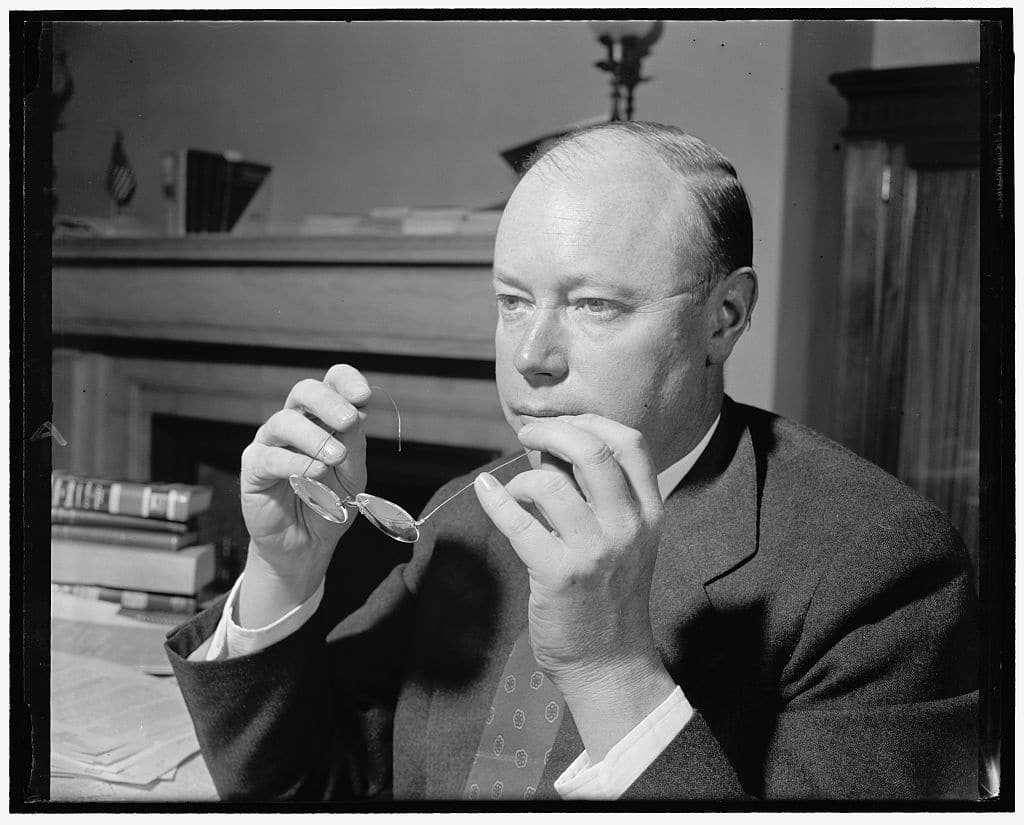On July 26, 1949, Ohio Senator Robert Taft delivered a speech in which he explicated his reasons for voting against ratification of the North Atlantic Treaty. His remarks included the following:
“If we undertake to arm all the nations around Russia from Norway on the north to Turkey on the south, and Russia sees itself ringed about gradually by so-called defensive arms from Norway and Denmark to Turkey and Greece, it may form a different opinion. It may decide that the arming of Western Europe, regardless of its present purpose, looks to an attack upon Russia. Its view may be unreasonable, and I think it is. But from the Russian standpoint, it may not seem unreasonable. They may well decide that if war is the certain result, that war might better occur now rather than after the arming of Europe is completed.
How would we feel if Russia undertook to arm a country on our border; Mexico, for instance?”
Taft correctly anticipated a future in which NATO expansion would provoke a military response from Russia. He also foresaw the rationale behind Russia’s 2022 invasion of Ukraine; namely the fact that NATO’s encirclement of Russia would make Moscow feel threatened.
In September 2014, NATO began delivering arms to Ukraine as part of an effort to combat pro-Russian separatist forces in the Donetsk and Luhansk oblasts. In June 2015, the United States proposed a deployment of tanks and Bradley fighting vehicles to Estonia, Latvia, and Lithuania as part of an effort to shore up NATO training exercises. In December 2015, Poland considered participating in a NATO program in which countries without nuclear weapons would be able to borrow them from the United States. In January 2017, NATO carried out a “large-scale defensive drill” along the Polish-Lithuanian border. In March 2018, the U.S. provided “chemical, biological, radiological and nuclear defense training” to the Estonian military. And in August 2019, NATO upgraded a ballistic missile defense system in Romania.
Taft’s dire prediction elucidated the contradiction at the heart of the North Atlantic Treaty. In attempting to guarantee the security of Western Europe, it instead increased the likelihood that the region would face hostilities from the east. It was only a matter of time before Russia took stock of the military activity to its west and decided that a preventive strike would be its best course of action.
Taft also said:
“Under the new pact, the president can take us into war without Congress. But above all, the treaty is a part of a much larger program by which we arm all these nations against Russia. A joint military program has already been made. It thus becomes an offensive and defensive military alliance against Russia. I believe our foreign policy should be aimed primarily at security and peace, and I believe such an alliance is more likely to produce war than peace.”
Taft’s speech echoes the sentiments expressed by President George Washington in his 1796 farewell address. Washington warned against “interweaving [America’s] destiny with that of any part of Europe.” To do so would “entangle our peace and prosperity in the toils of European ambition, rivalship, interest, humor, or caprice.”
Taft’s commentary also exemplified the foreign policy tradition of the Old Right, which rejected foreign military adventurism in favor of non-interventionism. Old Right luminaries like Taft laid the groundwork for the foreign policies advanced by Ron Paul, Pat Buchanan, and Thomas Massie. Taft himself initially opposed U.S. entry into World War II. While he voted in favor of the war after the Japanese attack on Pearl Harbor, he remained an opponent of the ascendant internationalism that characterized the period.
At the core of Taft’s pronouncements is a recognition of the fact that U.S. military intervention begets both domestic and international turmoil. Proponents of a proactive foreign policy often accuse non-interventionists of being naïve and unrealistic. But Taft understood the folly of militarism. A realist foreign policy is predicated on an appreciation for the limits of American power. The inherent difficulty of reshaping foreign borders, in Eastern Europe or elsewhere, coupled with the potential for retaliation, ought to give more interventionists pause. The speciousness of such a foreign policy agenda certainly convinced Taft to reject the lofty ideals represented by NATO.
On February 1, 2008, William Burns, then the U.S. ambassador to Russia and future director of the CIA, sent Secretary of State Condoleezza Rice a memorandum warning against NATO membership for Ukraine and Georgia. Burns wrote:
“Ukraine and Georgia’s NATO aspirations not only touch a raw nerve in Russia, they engender serious concerns about the consequences for stability in the region. Not only does Russia perceive encirclement, and efforts to undermine Russia’s influence in the region, but it also fears unpredictable and uncontrolled consequences which would seriously affect Russian security interests. Experts tell us that Russia is particularly worried that the strong divisions in Ukraine over NATO membership, with much of the ethnic-Russian community against membership, could lead to a major split, involving violence or at worst, civil war. In that eventuality, Russia would have to decide whether to intervene; a decision Russia does not want to have to face.”
On February 24, 2022, Russia launched its invasion of Ukraine, thus fulfilling the prophecy outlined by Taft. That conflict is now in its fourth year. By all accounts, it is unlikely to end anytime soon, even with an additional series of peace talks currently taking place in Istanbul.
Nearly thirty-five years after the end of the Cold War, NATO remains a relic of a bygone era. The West insisted that its preservation would ensure peace. They claimed that expanding NATO eastward would forestall or prevent Russian aggression, guaranteeing freedom and prosperity for Eastern Europe. They were wrong.































